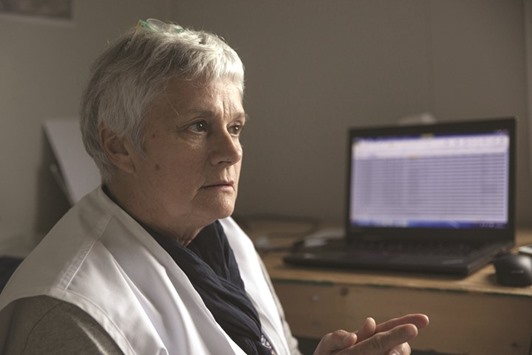As rain pours at a muddy migrant camp in Calais in northern France, patients sit inside portable offices waiting to be seen by volunteer medical staff at a makeshift health clinic.
Some migrants are here seeking treatment for physical ailments, others wanting relief from recurring nightmares and memories of torture.
“It’s very difficult to live in these conditions. They are here because they are trying to go away from the suffering (in their home country),” said French psychiatrist Joelle Vernet. “They are not in the present, they want to escape from the difficulties (they have suffered).”
Vernet is one of two mental health workers treating up to 10,000 people who have converged on the Calais “Jungle” camp, fleeing war or poverty in the Middle East and Africa and seeking ways to cross in Britain.
“They have a lot of physical pain but there’s nothing really there,” said Vernet, who works for medical charity Medecins Sans Frontieres. “They might say they have a headache or a sleeping disorder – but we know that’s not the problem. We try to help them understand the real reason is in their mind.”
The most common mental health problems she treats are depression and post-traumatic stress disorder, she said.
She said that it is a race against time to treat migrants in Calais who have mental health issues, as French authorities said they will start to dismantle the migrant camp by the end of next week, possibly as soon as tomorrow.
Britain remains a favoured destination for many migrants due to family links, the language they are often more likely to speak than French, and higher prospects of employment.
Most migrants who spoke to the Thomson Reuters Foundation said that they would still try to reach Britain even if the Calais camp closes, while a handful said they were willing to remain in France and live in official migrant camps across the country.
The lack of certainty weighed heavily on the minds of most of her patients, Vernet said, adding that some were afraid they would be sent to “concentration camps”.
“Nobody is well in such situations ... it is very stressful for them and there is a lot of rumour and we have to help them be as calm as possible,” she said. “But we don’t have enough time, and don’t have enough people.”
Vernet said among the 100 or so patients she treats, around five had been hospitalised for psychiatric care, but said suicide attempts were rare.
While not ideal, she said she would prescribe medication because there was “no time” to provide longer term psychological care.
“Sometimes we give them medication but we have no time, and they have no time. So if the next night they want to go try to go to England, they will be in danger if they are not in the (right frame of mind).”
As France prepares for the eviction of one of Europe’s biggest migrant camp, Vernet urged the authorities to ensure that her patients in Calais receive appropriate mental health care wherever they end up.
“We will try be there, if we can, to help our patients ... where they are,” she said. “We try to speak to what is strong inside them, because they have strength inside them.”

Vernet: we don’t have enough time, and don’t have enough people.
